|
The coverage of the recent floods in Mozambique, Zimbabwe and Malawi by South African media has been roundly criticised, especially on social media. Journalists have been on the receiving end. But, writes Glenda Daniels, the blame lies with media owners who obliterated newsroom budgets, making it impossible for newsrooms to cover events properly.
The Democratic Republic of the Congo has a long history of failed power sharing deals. Julie M Norman and Drew Mikhael suggest the chances are high that a deal between President Felix Tshisekedi and his predecessor Joseph Kabila, which seems increasingly likely, could be beset by the same problems.
In the latest episode of Pasha, Professor Tawana Kupe sheds light on fake news and why it's a problem calling it by that name. He also discusses the role science can play in fighting fake news.
|
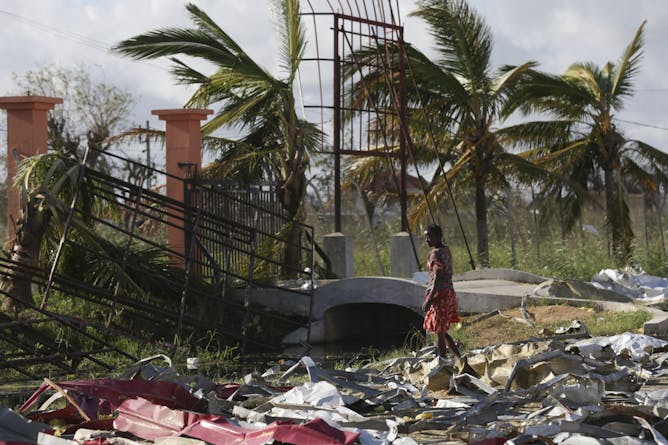
A woman searches for materials to rebuild her home after the passage of Cyclone Idai, in Beira City, central Mozambique.
EPA-EFE/Tiago Petinga
Glenda Daniels, University of the Witwatersrand
The lack of in-depth coverage of the southern African floods tell a grim picture of the state of South Africa's newsrooms.
|
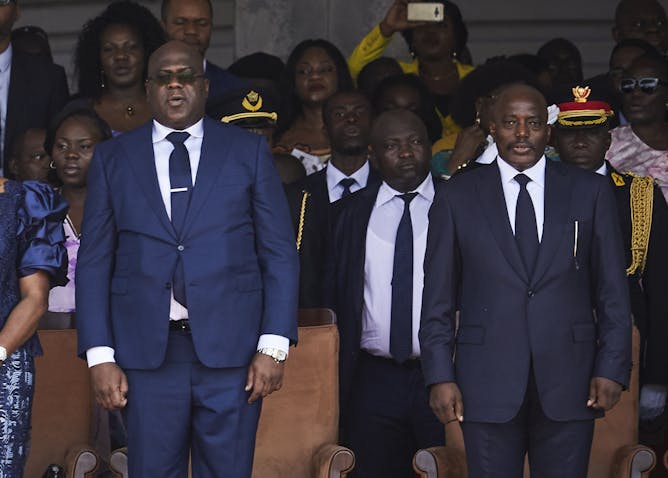
DRC’s new President Felix Tshisekedi (left) and outgoing President Joseph Kabila. The two have agreed to share power.
Hugh Kinsella/EPA-EFE
Julie M Norman, Queen's University Belfast; Drew Mikhael, Queen's University Belfast
The Democratic Republic of Congo has implemented power-sharing agreements before but none of them have worked.
|
Politics + Society
|
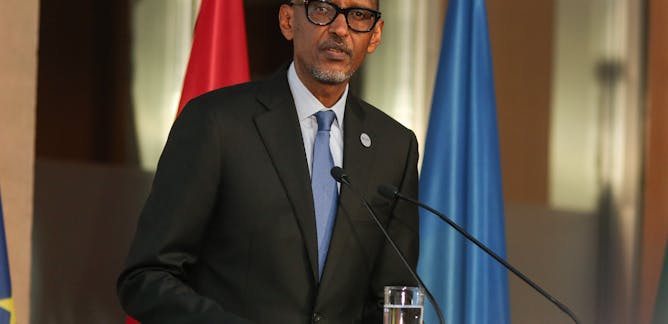
Marie E. Berry, University of Denver; Laura Mann, London School of Economics and Political Science
Rwanda is a paradox -- a 'development miracle' and an authoritarian state.
| |
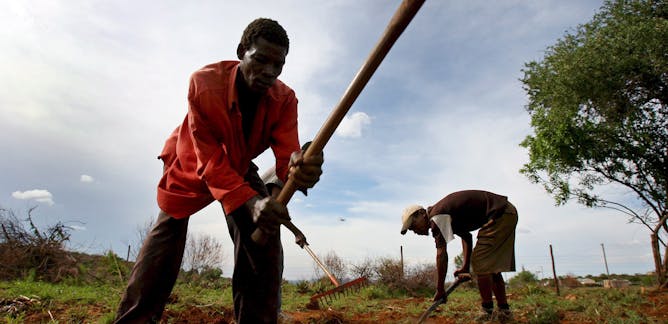
Sonwabile Mnwana, University of Fort Hare
Land reform programme has done very little to improve access to land for black South Africans.
|
|
|
Education
|
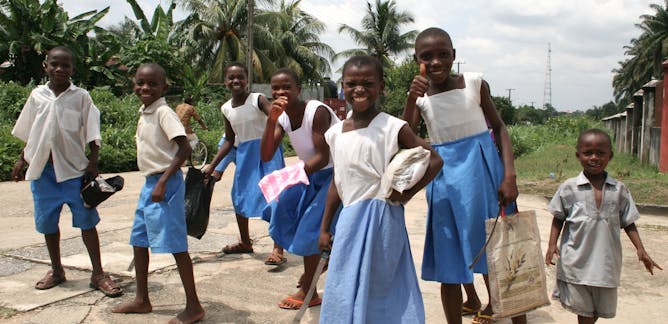
Omowumi Olabode Steven Ekundayo, University of Benin
Nigeria has the world's highest number of out-of-school children and over 60 million of its citizens are illiterate. Here's what the country can do to improve its education sector.
| |

Bernard Slippers, University of Pretoria; Eva Alisic, University of Melbourne
Science development in Africa is intimately linked to the quality of people who are able to lead change.
|
|
|
Podcast
|
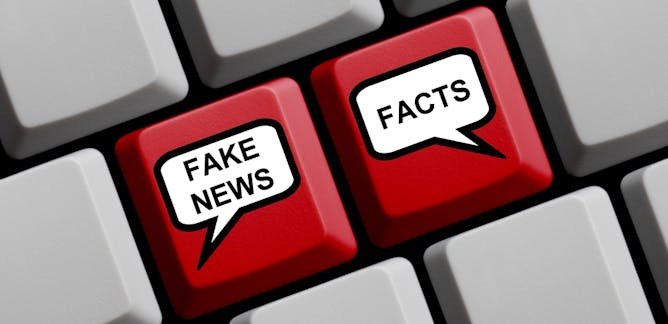
Ozayr Patel, The Conversation
In the era of fake news, science can play a crucial role.
| |

Ozayr Patel, The Conversation
Why it's important South Africa doesn't ignore sexually transmitted infections.
|
|
|
From our international editions
|
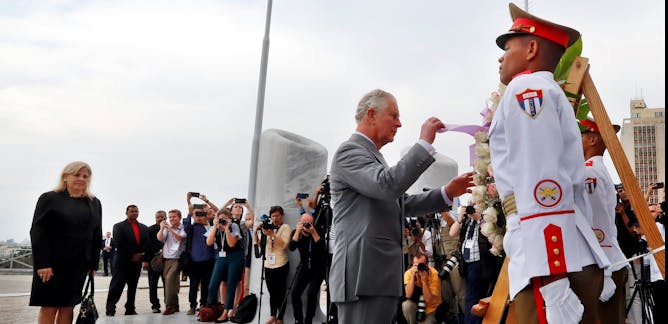
James Clifford Kent, Royal Holloway; Christopher Hull, University of Chester
A first-ever official royal visit now signals a sea change in British foreign policy towards post-Fidel Cuba.
| |
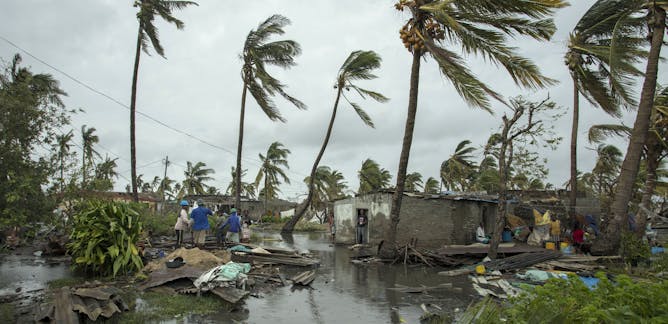
Quan Nguyen, University of St Andrews
Climate change is an emergency which will hurt the planet's most vulnerable people – the only irrational response is cool detachment.
|
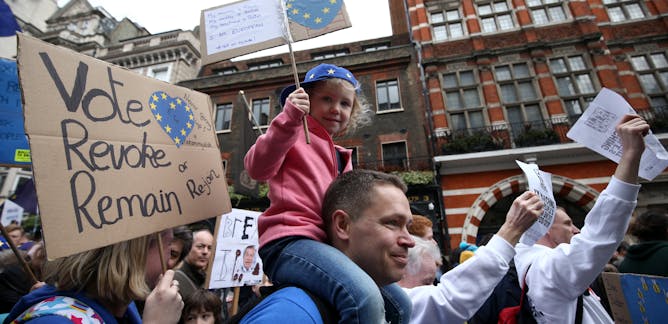
Cristina Leston-Bandeira, University of Leeds
E-petitions are an important democratic tool but they need to be part of something bigger to really change things.
| |
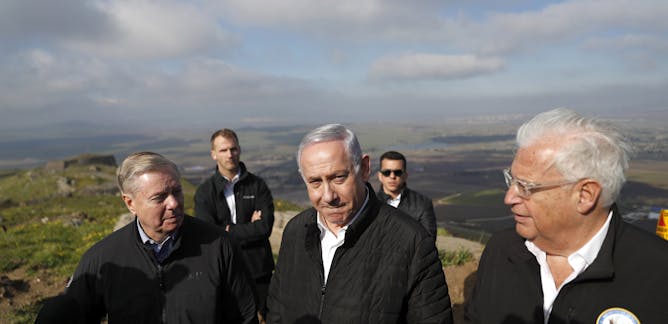
Dina Badie, Centre College
Political leverage aside, it's a major source of water in a parched corner of the world that harbors significant oil deposits.
|
|
|